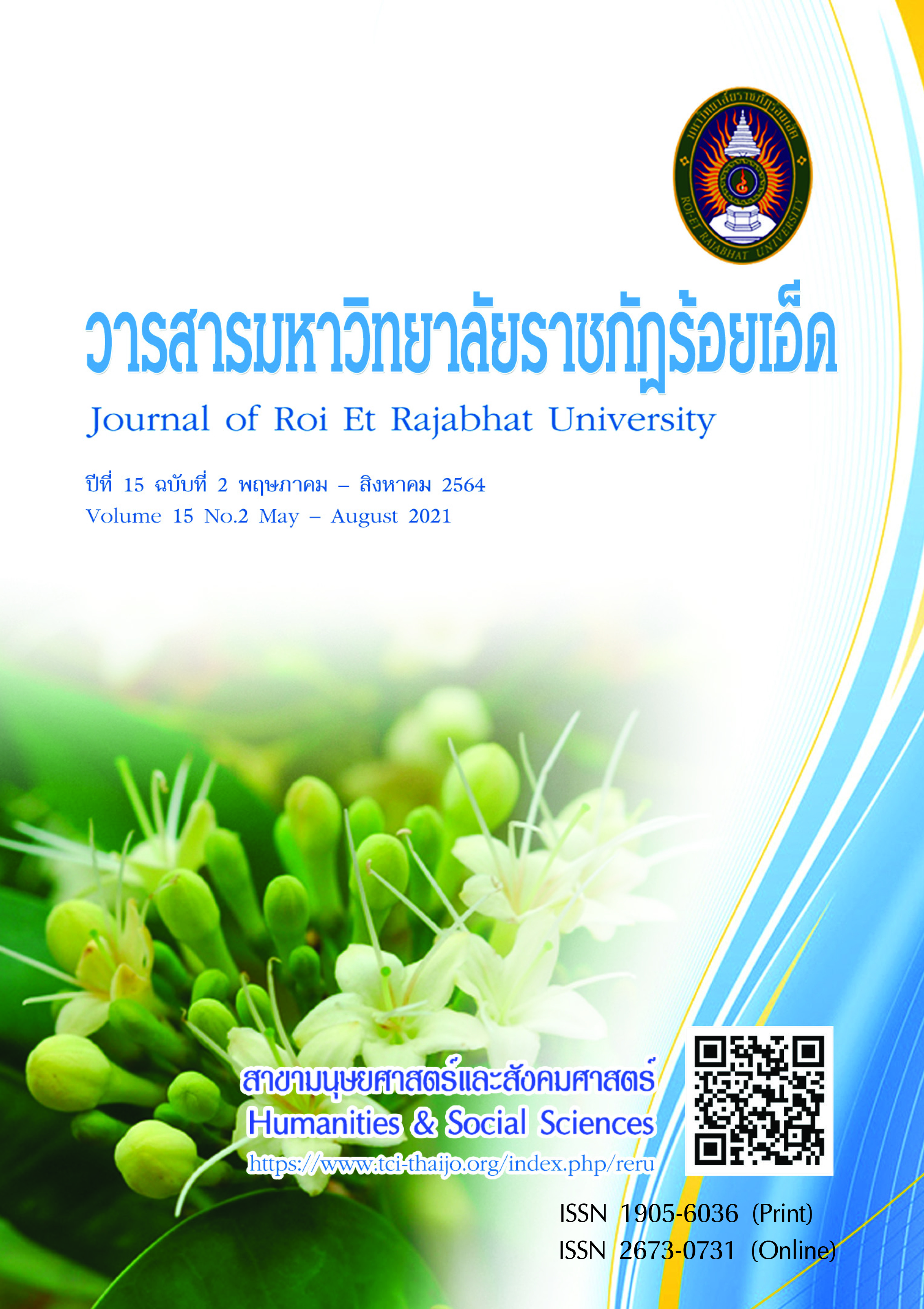The Development 4MAT Learning Management Plan Integrated with the Polya Problem Solving Approach to Develop Problem Solving Skills in Mathematics
Keywords:
4 MAT learning management plan with Polya problem solving, Mathematics learning achievement, Mathematics problem solving skillsAbstract
This research on development of 4MAT learning activities integrated with the Polya problem solving approach to develop problem solving skills in mathematics had objectives to 1) develop learning management plans using 4MAT learning activities integrated with the Polya problem solving concept, 2) develop a problem-solving skills test for Grade 8 students students and 3) develop a mathematic learning achievement test for Grade 8 students students. The target group used in this study were 5 experts included 1) two experts in curriculum and teaching, 2) two experts in mathematics teaching, and 3) one expert in Polya’s problem solving. Those target groups were obtained using the purposive sampling technique. Tools used in this research consisted of 1) 4 MAT learning management plans integrated with Polya problem solving 2) The mathematics learning achievement test 3) The mathematical problem-solving skill test. The statistics used in the research were percentage, mean, standard deviation and index of congruence. The research found that 4 MAT learning management plans integrated with Polya problem solving concept total of 12 plans evaluated by experts were at a very good level ( = 4.52), the mathematics problem solving skills test and the mathematics learning achievement test showed the expert consistency index between 0.80-1.00, which passed the criteria and can be used in next experiments.
References
กระทรวงศึกษาธิการ. (2551). หลักสูตรแกนกลางการศึกษาขั้นพื้นฐาน พุทธศักราช 2551. กรุงเทพฯ: โรงพิมพ์องค์การรับส่ง
สินค้าและพัสดุภัณฑ์.
ณัฐวุฒิ กิจรุ่งเรือง. (2545). ผู้เรียนเป็นสำคัญและการเขียนแผนการจัดการเรียนรู้ของครูมืออาชีพ. กรุงเทพฯ: สถาพรบุ๊ค.
นันทิยา พรมทา. (2559). การพัฒนากิจกรรมการเรียนการสอนคณิตศาสตร์โดยใช้รูปแบบวัฏจักรการเรียนรู้แบบ 4MAT
ร่วมกับเทคนิคการใช้คำถามของบลูม เรื่องทศนิยมและเศษส่วน ชั้นมัธยมศึกษาปีที่ 1. วิทยานิพนธ์
ศึกษาศาสตรหาบัณฑิต สาขาวิชาหลักสูตรและการเรียนการสอน. สกลนคร: มหาวิทยาลัยราชภัฏสกล.
ฟาฏินา วงศ์เลขา. (2552). คณิตศาสตร์ความจำเป็นที่ไม่ควรมองข้าม. สืบค้นเมื่อ 25 กุมภาพันธ์ 2562, จาก
https://mcpswis.mcp.ac.th/html_edu/cgi-bin/main_php/print_informed.php?id_count_inform=9528
วิเชียร เกตุสิงห์. (2538). ค่าเฉลี่ยและการแปลความหมาย. ข่าวสารวิจัยทางการศึกษา, 18(3), 8-11.
สุวารี ศรีอำไพวิวัฒน์. (2559). ผลการจัดการเรียนรู้แบบ 4MAT ร่วมกับเทคนิคทีจีที ที่มีต่อรแงจูงใจใฝ่สัมฤทธิ์ของนักเรียน
ชั้นมัธยมศึกษาปีที่ 2. วิทยานิพนธ์ ศึกษาศาสตรมหาบัณฑิต สาขาวิชาหลักสูตรและการเรียนการสอน. ชลบุรี:
มหาวิทยาลัยบูรพา.
สมนึก ภัททิยธนี. (2547). การวัดผลการศึกษา. มหาสารคาม: มหาวิทยาลัยศรีนครินทรวิโรฒ มหาสารคาม.
รวีวรรณ ชินะตระกูล. (2543). การวิจัยเชิงคุณภาพ. กรุงเทพฯ: ภาพพิมพ์.
McCarthy, S. (1997). A Tale of Four Learner: 4 MAT’s Learning Styles. Retrieved February 10, 2020,
From https://www.semanticscholar.org/paper/A-Tale-of-Four-Learners%3A-4MAT's-Learning-
Styles.-McCarthy/3e276ab6e3dfd897cba5521d6922d7b6019ac168#paper-heade
Polya, G. (1957). How To Solve It: A New Aspect of Mathematical Method (2nd ed.). New York: Doubleday
and Company.
Downloads
Published
How to Cite
Issue
Section
License
บทความที่ได้รับการตีพิมพ์เป็นลิขสิทธิ์ของวารสารมหาวิทยาลัยราชภัฎร้อยเอ็ด
ข้อความที่ปรากฏในบทความแต่ละเรื่องในวารสารวิชาการเล่มนี้เป็นความคิดเห็นส่วนตัวของผู้เขียนแต่ละท่านไม่เกี่ยวข้องกับมหาวิทยาลัยราชภัฎร้อยเอ็ด และคณาจารย์ท่านอื่นๆในมหาวิทยาลัยฯ แต่อย่างใด ความรับผิดชอบองค์ประกอบทั้งหมดของบทความแต่ละเรื่องเป็นของผู้เขียนแต่ละท่าน หากมีความผิดพลาดใดๆ ผู้เขียนแต่ละท่านจะรับผิดชอบบทความของตนเองแต่ผู้เดียว





